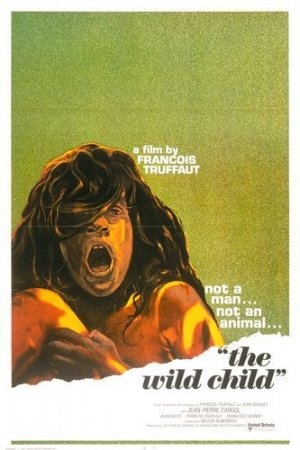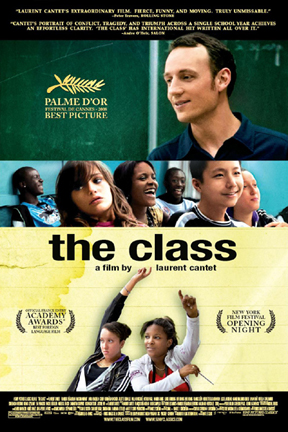 The Wild Child (1970, directed by Francois Truffaut, 83 minutes, France)
The Wild Child (1970, directed by Francois Truffaut, 83 minutes, France)
The Class (2008, directed by Laurent Cantet, 128 minutes, France)
BY DAN BUSKIRK FILM CRITIC
Francois Truffaut died of a brain tumor in 1983, and at the time of his his death he was the most popularly beloved of the French New Wave directors. Since his death his reputation seems to have receded with the public, the formality of his storytelling upstaged by the more extreme stylistics of Godard. While he may lack Godard’s audacity, Truffaut’s wide-ranging curiosity produced an astonishing catalog of films; revenge dramas, black & white homages, romantic comedies and more, all bound by Truffaut’s precise understanding and human beings, their motivations and foibles.
The current theatrical reissue of Truffaut 1970 classic The Wild Child is as good a place as any to revisit this master’s work. Closely based on the case of the “Wild Boy of Aveyron“, Wild Child tells the story of a young boy of eleven or twelve who was found living naked and alone in the woods in 1797. He was taken to Paris and placed in a home for the deaf where he was exhibited to the public as a freak until Doctor JeanItard (played here by Truffaut himself in his acting debut) brought the boy to his home in an attempt to civilize him.
Truffaut empathy for children is a major theme, stemming from his own troubled youth famously fictionalized in his debut The 400 Blows. It’s fitting that he would cast himself as the child’s savior yet Truffaut expresses his own doubts on the superiority of society over nature. The film itself never attempts to match the beauty and excitement of the child’s life in the woods, where the boy does seem at peace while resting atop a tall tree. Dr.Itard may slowly gain the boy’s trust and dependence but that can’t erase the lingering claustrophobic feeling that more has been taken from the boy than has been replaced. It is an ambiguity the similarly-themed Helen Keller bio The Miracle Worker never dreamed of and a typical example of the questions that remain at the conclusion of Truffaut’s films, where life is always too wild and woolly for a conclusive wrap-up.
– – – – – – – – – – –
Truffaut’s spirit is certainly present in last year’s Palm d’Or winner The Class. Particularly reminiscent of Truffaut’s schoolkid epic Small Change, The Class chronicles in near-documentary style the school  year of a Paris French teacher and his boisterous, none-to-eager-to-learn teenage students. It is adapted from a book byFrançois Bégaudeau, based on his teaching experiences and the film’s realism is aided immeasurably by casting Bégaudeau himself as the teacher, Mr. Marin. Bégaudeau and the young multicultural cast improvised much of the dialogue and situations and together they summon crackling sense of reality in their freewheeling extended classroom scenes.
year of a Paris French teacher and his boisterous, none-to-eager-to-learn teenage students. It is adapted from a book byFrançois Bégaudeau, based on his teaching experiences and the film’s realism is aided immeasurably by casting Bégaudeau himself as the teacher, Mr. Marin. Bégaudeau and the young multicultural cast improvised much of the dialogue and situations and together they summon crackling sense of reality in their freewheeling extended classroom scenes.
Where the Hollywood version of this story would likely lionize teaching and education, The Class sees it more as a circus, with the teacher as a ringmaster. Racial taunts are made and cultural rifts are addressed without tact by the students, and Mr. Marin, who is constantly challenged by his frequently dismissive class as he labors hard to keep the lessons on track. Marin’s the type of teacher who wishes to appear hip and relevant to the kids but the students and the audience know that he steps over the line when he refers to a pair female students with the street language they themselves use. The students know they have him by the hook and you can feel the thrill of power the kids have when they threaten to go to the principal over the incident. Balancing the needs and experiences of a classroom of inner city kids is quite a high-wire and The Class makes you appreciate the fact by allowing you watch this well-meaning teacher plummet into the net.
